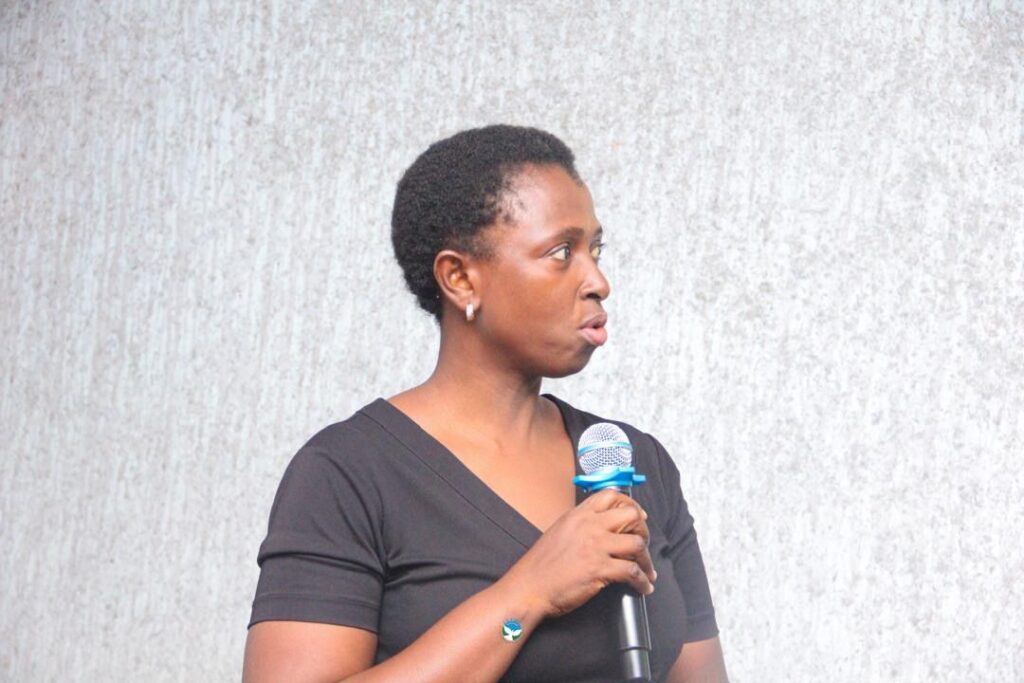The Justice Development and Peace Makers Centre (JDPMC) has emphasized the urgent need for a coordinated and holistic approach to addressing Gender-Based Violence (GBV) and promoting legal awareness across Nigeria.
Speaking at a stakeholders’ roundtable on gender issues at the Diocesan Headquarters, Oke-Ayepe, Osogbo, Barrister Veronica Ene Onoja, Head of Programmes, underscored the importance of synergy among civil society organizations, professional bodies, and security agencies in bridging existing gaps in GBV response mechanisms.
Onoja commended organizations like JDPMC, the Federation of Women Lawyers (FIDA), the Nigerian Bar Association (NBA), and security agencies for their efforts but stressed that fragmented interventions are no longer sufficient.
“We are at a critical juncture where legal enforcement must be complemented by social support and proactive representation,” she said. “There remains a substantial gap in public understanding of GBV laws, which can only be closed through sustained awareness, advocacy, and guaranteed access to justice.”
She acknowledged the efforts of the police and civil defense corps in investigation, arrest, and prosecution but noted that the judiciary must prioritize victim-centered adjudication, particularly through family courts designed to handle sensitive cases.
Onoja further raised concerns over poor institutional coordination, urging ministries such as Women Affairs, Justice, and the Human Rights Commission to harmonize their efforts in creating a comprehensive support system for victims. She highlighted the economic and social barriers that often hinder women from seeking justice, emphasizing the need to strengthen support structures and reduce bottlenecks.
“Our institutions must evolve to become more responsive and inclusive,” she added. “Policy reforms must integrate gender perspectives, not as a token, but as a foundation for equitable governance.”
Onoja concluded by advocating for increased women’s representation in leadership positions, asserting that combating GBV is not solely a women’s battle but a fight for humanity.
Speaking on behalf of FIDA, Barrister Damilola Olabiyi decried the deplorable state of welfare facilities in Osun State, particularly the government-run welfare home in Osogbo. She noted that the facility is grossly overpopulated, making it difficult to provide adequate care for vulnerable individuals, including GBV survivors and abandoned children.
“The welfare home in Osogbo is overstretched. We now have more cases than the facility can handle, which compromises the quality of care and protection available to those in need,” Olabiyi lamented.
She appealed to the government to urgently expand and equip welfare facilities, stressing that a single shelter cannot meet the growing demand.
“It is no longer acceptable to rely on an overwhelmed shelter. We are appealing for urgent intervention — basic amenities, expansion, and better-equipped welfare homes must be prioritized,” she added.
Also speaking at the event, Chief Superintendent of Police (CSP) Mabel Faniran highlighted the systemic challenges faced by law enforcement officers in addressing GBV cases. She called for the establishment of a Police Support Fund to bolster the capacity of the police in handling sensitive cases such as domestic and sexual violence.
“We are constantly called upon to address serious gender-based violence cases, but we work with very limited resources. A dedicated Police Support Fund would significantly enhance our ability to respond promptly and provide essential support to survivors,” CSP Faniran stated.
She also pointed out that police officers often lack logistical support, specialized training, and access to rehabilitation services, all of which are critical in handling GBV cases effectively.
“If we are to fulfill our mandate, systemic support in terms of logistics, capacity building, and welfare packages for officers involved in GBV cases is crucial,” she said.















